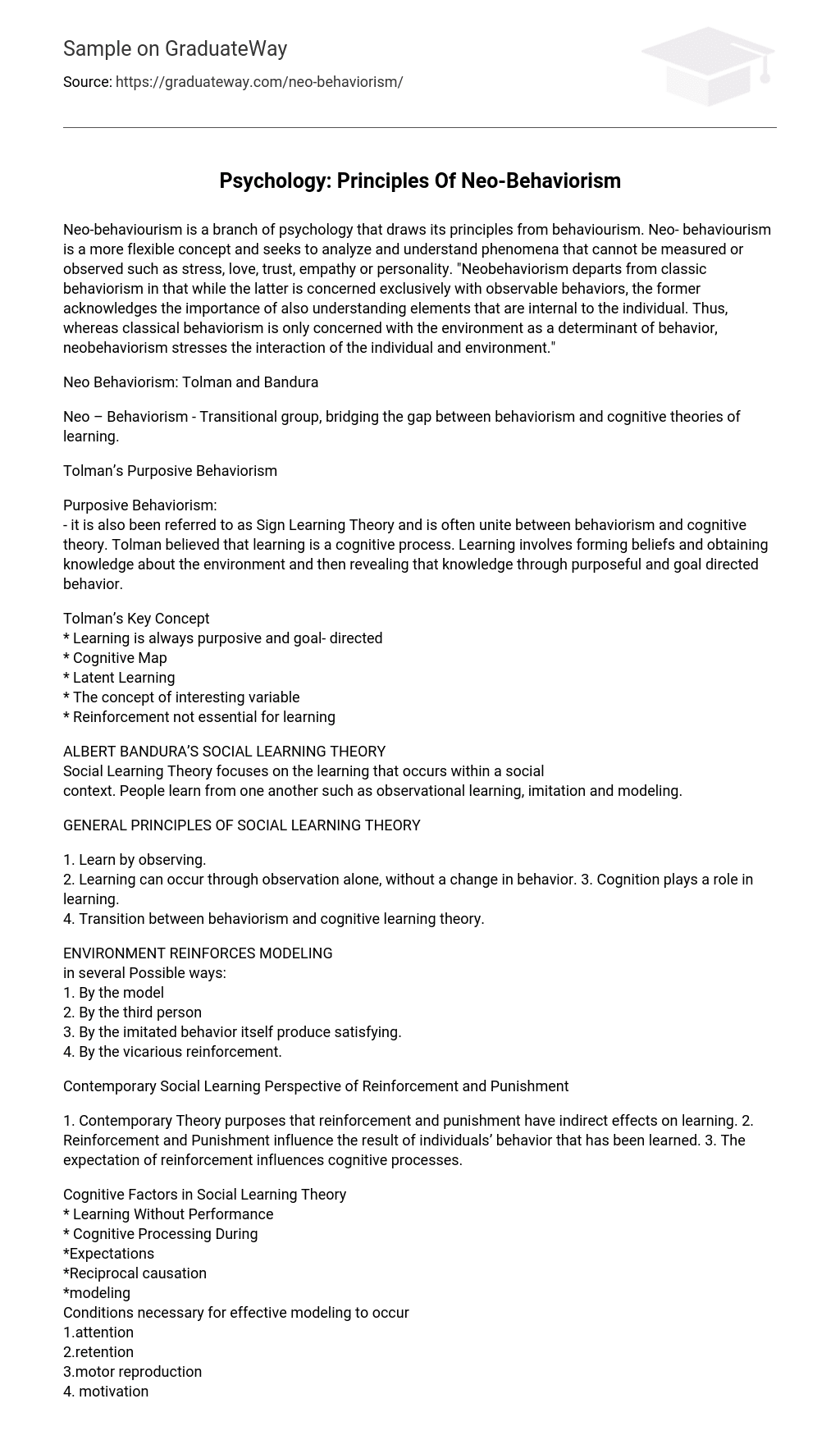Neo-behaviourism is a branch of psychology that draws its principles from behaviourism. Neo- behaviourism is a more flexible concept and seeks to analyze and understand phenomena that cannot be measured or observed such as stress, love, trust, empathy or personality. “Neobehaviorism departs from classic behaviorism in that while the latter is concerned exclusively with observable behaviors, the former acknowledges the importance of also understanding elements that are internal to the individual. Thus, whereas classical behaviorism is only concerned with the environment as a determinant of behavior, neobehaviorism stresses the interaction of the individual and environment.”
Neo Behaviorism: Tolman and Bandura
Neo – Behaviorism – Transitional group, bridging the gap between behaviorism and cognitive theories of learning.
Tolman’s Purposive Behaviorism
Purposive Behaviorism:
– it is also been referred to as Sign Learning Theory and is often unite between behaviorism and cognitive theory. Tolman believed that learning is a cognitive process. Learning involves forming beliefs and obtaining knowledge about the environment and then revealing that knowledge through purposeful and goal directed behavior.
Tolman’s Key Concept
* Learning is always purposive and goal- directed
* Cognitive Map
* Latent Learning
* The concept of interesting variable
* Reinforcement not essential for learning
ALBERT BANDURA’S SOCIAL LEARNING THEORY
Social Learning Theory focuses on the learning that occurs within a social
context. People learn from one another such as observational learning, imitation and modeling.
GENERAL PRINCIPLES OF SOCIAL LEARNING THEORY
1. Learn by observing.
2. Learning can occur through observation alone, without a change in behavior. 3. Cognition plays a role in learning.
4. Transition between behaviorism and cognitive learning theory.
ENVIRONMENT REINFORCES MODELING
in several Possible ways:
1. By the model
2. By the third person
3. By the imitated behavior itself produce satisfying.
4. By the vicarious reinforcement.
Contemporary Social Learning Perspective of Reinforcement and Punishment
1. Contemporary Theory purposes that reinforcement and punishment have indirect effects on learning. 2. Reinforcement and Punishment influence the result of individuals’ behavior that has been learned. 3. The expectation of reinforcement influences cognitive processes.
Cognitive Factors in Social Learning Theory
* Learning Without Performance
* Cognitive Processing During
*Expectations
*Reciprocal causation
*modeling
Conditions necessary for effective modeling to occur
1.attention
2.retention
3.motor reproduction
4. motivation





